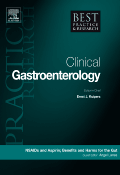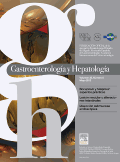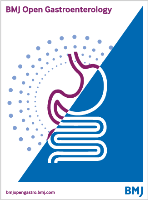
Best Practice & Research Clinical Gastroenterology
Scope & Guideline
Pioneering Research for Optimal Clinical Practice in Gastroenterology
Introduction
Aims and Scopes
- Endoscopic Techniques and Innovations:
The journal extensively covers advancements in endoscopic procedures, including third space endoscopy, per oral endoscopic myotomy (POEM), and various endoscopic interventions aimed at treating gastrointestinal disorders. - Management of Gastrointestinal Complications:
A significant focus is placed on the management of complications arising from gastrointestinal interventions, such as perforations, fistulas, and anastomotic leakages, highlighting multimodal approaches to treatment. - Prognostic Modeling and Risk Stratification:
The journal includes research on prognostic models and scoring systems to aid in the risk stratification of gastrointestinal diseases, particularly in colorectal cancer and liver diseases. - Nutritional Interventions and Dietary Management:
There is an emphasis on the role of nutrition in managing gastrointestinal conditions, exploring dietary factors and interventions that can influence disease outcomes. - Multidisciplinary Approaches to Cancer Treatment:
The journal promotes discussions on multidisciplinary management of gastrointestinal cancers, including the integration of endoscopic techniques with surgical and systemic therapies.
Trending and Emerging
- Third Space Endoscopy:
There is a marked increase in research related to third space endoscopy, showcasing its growing importance in managing various gastrointestinal conditions and expanding therapeutic options. - Multimodal Management of Gastrointestinal Disorders:
Emerging trends emphasize the integration of multiple treatment modalities, combining endoscopy with surgical and medical therapies to enhance patient outcomes. - Prognostic Models and Predictive Analytics:
Recent papers increasingly focus on developing and validating prognostic models that assist clinicians in predicting outcomes for patients with gastrointestinal diseases. - Nutrition and Dietary Management:
There is a rising interest in the role of nutrition in gastrointestinal health, with studies exploring dietary interventions and their impact on disease management and prevention. - Complications of Endoscopic Procedures:
An increased focus on understanding and managing complications associated with endoscopic interventions reflects a commitment to improving patient safety and procedural efficacy.
Declining or Waning
- Traditional Surgical Techniques:
There appears to be a waning interest in conventional surgical methods for gastrointestinal disorders, as newer endoscopic techniques gain prominence in the literature. - Basic Research on Gastrointestinal Physiology:
Research focusing on fundamental physiological aspects of the gastrointestinal system seems to be less prevalent, possibly overshadowed by more clinical and procedural advancements. - Immunosuppression in Gastroenterology:
Although immunosuppression remains a critical area, publications related specifically to immunosuppressive strategies outside of transplant contexts are less frequently highlighted. - Emerging Technologies Beyond Endoscopy:
There has been a noticeable decrease in publications discussing technologies outside endoscopy, such as imaging techniques or less invasive diagnostic methods, indicating a narrowed focus on endoscopic advancements.
Similar Journals

PRACTICAL GASTROENTEROLOGY
Exploring Innovations in Gastrointestinal HealthPRACTICAL GASTROENTEROLOGY is a distinguished journal dedicated to the field of gastroenterology, published by Shugar Publishing Inc in the United States. With an ISSN of 0277-4208, the journal serves as a pivotal resource for medical professionals, researchers, and students keen on staying abreast of the latest advancements and practical applications in gastrointestinal health. Although it does not currently operate under an Open Access model, it has been a respected publication since its inception, spanning significant years of research from 1989 to 2013 and resuming again from 2016 to 2023. Despite holding a current Q4 ranking in Gastroenterology with Scopus, its commitment to quality insights provides a platform for critical information dissemination, making it an essential read for those engaged in clinical practice and academic research. The journal’s objectives include addressing practical challenges in gastroenterology, bridging the gap between research and clinical implementation, and fostering ongoing education among practitioners in this dynamic field.

International Journal of Gastrointestinal Intervention
Elevating Standards in Gastroenterology ResearchInternational Journal of Gastrointestinal Intervention is a distinguished open-access journal published by the SOC GASTROINTESTINAL INTERVENTION that has been committed to disseminating critical research since its inception in 2012. Based in the Netherlands, this journal focuses on the dynamic fields of gastroenterology, hepatology, oncology, and radiology, offering a platform for innovative studies and clinical interventions that can significantly impact patient care and medical practice. With its incorporation into Scopus and ranked within the lower quartiles in various categories as of 2023, the journal acknowledges the evolving landscape of medical research and seeks to continually elevate its contributions to knowledge in these specialized areas. By embracing open access since its founding, the journal ensures that cutting-edge research findings are accessible to a global audience, fostering collaboration and knowledge sharing among researchers, professionals, and students. The journal aims to be a premier source of information and a catalyst for advancements in gastrointestinal interventions, making it an essential resource for those dedicated to improving health outcomes in these critical medical fields.

DIGESTION
Advancing gastroenterology through rigorous research.DIGESTION is a prestigious journal dedicated to advancing the field of gastroenterology, published by KARGER, a renowned publisher based in Switzerland. With a rich history dating back to 1896, this journal has continuously evolved and serves as a vital platform for researchers, professionals, and students alike. DIGESTION is recognized for its scholarly contributions, holding an impressive rank of 23 out of 167 in the Scopus database, placing it within the top 14% of gastroenterology journals, as evidenced by its Q2 classification. The journal's commitment to high-quality research is reflected in its wide-ranging scope, addressing various aspects of digestive health, clinical practices, and innovative therapies. Though not an open-access journal, it provides comprehensive access options that ensure the dissemination of crucial research findings to the global community. As we move towards 2024, DIGESTION continues to facilitate dialogue and insights in gastroenterological research, making it an indispensable resource for those in the field.

BMC GASTROENTEROLOGY
Your Gateway to Cutting-Edge Gastrointestinal DiscoveriesBMC Gastroenterology is a premier open-access journal published by BMC, dedicated to disseminating high-quality research in the field of gastroenterology. Established in 2001 and headquartered in the United Kingdom, this journal aims to enhance the understanding of gastrointestinal disorders through innovative research, reviews, and clinical studies. With an impressive impact factor and ranking within the Q2 category in gastroenterology and miscellaneous medicine for 2023, BMC Gastroenterology plays a critical role in advancing knowledge and practices in the field. The journal's commitment to open access ensures that researchers, professionals, and students worldwide can freely access and share vital findings and insights. Encouraging collaboration and knowledge transfer, BMC Gastroenterology is an essential resource for those dedicated to improving gastrointestinal health and outcomes.

Gastroenterology Research
Elevating the field of gastroenterology, one study at a time.Gastroenterology Research is a prominent scholarly journal dedicated to advancing the field of gastroenterology. Published by ELMER PRESS INC, this journal serves as a vital platform for disseminating innovative research, clinical findings, and comprehensive reviews that explore the complexities of the gastrointestinal system. With an ISSN of 1918-2805 and an E-ISSN of 1918-2813, it reaches a global audience of researchers, healthcare professionals, and students eager to contribute to or keep abreast of the latest developments in gastroenterology. Though details such as the H-index and Scopus rankings are currently unspecified, the journal's commitment to quality and impact in the medical research community is evident. Gastroenterology Research aims to foster collaboration and knowledge sharing among experts, ultimately improving patient care and outcomes within this critical area of health science. Explore the cutting-edge studies published within its pages and engage with a community passionate about the investigation and treatment of gastrointestinal diseases.

Clinical Endoscopy
Connecting Global Expertise in Clinical EndoscopyClinical Endoscopy is a premier open-access journal dedicated to advancing the field of gastrointestinal endoscopy, published by the Korean Society of Gastrointestinal Endoscopy. Since its inception in 2012, this journal has focused on disseminating high-quality research and innovative practices in gastroenterology, with an emphasis on techniques, outcomes, and patient safety. With an impact factor reflecting its influence, it has consistently earned Q2 ranking in notable categories including Gastroenterology, Medicine (miscellaneous), and Radiology, Nuclear Medicine and Imaging. Based in South Korea, the journal plays a critical role in bridging research advancements with clinical practice across a global audience. Researchers, clinicians, and students will find a wealth of valuable insights in this journal, which strives to enhance both knowledge and practical applications within the dynamic landscape of gastrointestinal endoscopy.

Gastroenterologia y Hepatologia
Empowering healthcare professionals with high-quality research.Gastroenterologia y Hepatologia, published by Elsevier España SLU, is a distinguished journal dedicated to advancing the fields of gastroenterology and hepatology. With a publication history spanning from 1982 to 2024, this journal is recognized for its commitment to disseminating high-quality research and reviews that address critical developments in the diagnosis and treatment of gastrointestinal and liver diseases. Although it currently ranks in the Q3 quartile in both gastroenterology and hepatology based on the 2023 metrics, the journal continues to attract a global audience of researchers, healthcare professionals, and students eager to engage with the latest findings. The journal is accessible in both print and electronic formats (ISSN: 0210-5705), making its valuable insights reachable to a broad spectrum of subscribers. By fostering a platform for rigorous scholarly communication, Gastroenterologia y Hepatologia plays a vital role in shaping the future of research in these essential medical fields.

Gut and Liver
Unlocking insights for better gut and liver health.Gut and Liver is a prestigious peer-reviewed journal dedicated to advancing the fields of Gastroenterology and Hepatology. Published by the EDITORIAL OFFICE GUT & LIVER in South Korea, this Open Access journal has been disseminating valuable research findings since 2007, making critical knowledge accessible to a global audience. With an impressive 2023 impact factor that places it in Q1 rank in both Gastroenterology (#28/167) and Hepatology (#22/82), it is recognized as a leader in the medical domain. The journal covers diverse topics, including innovative therapeutic strategies, clinical practices, and groundbreaking research in liver diseases and gastrointestinal disorders, thereby playing a vital role in improving patient care and outcomes. Researchers, healthcare professionals, and students can benefit from the journal's wealth of information, designed to foster collaboration and spark new ideas within the scientific community. For further engagement with current research, readers can access issues from 2009 to 2024 and stay updated on the latest advancements in the field.

Indian Journal of Gastroenterology
Connecting Researchers and Practitioners in GastroenterologyThe Indian Journal of Gastroenterology, a prominent publication in the field of gastroenterology, is published by Springer India. With roots dating back to 1982 and an ongoing commitment to disseminating high-quality research, this journal serves as a vital platform for researchers, practitioners, and students interested in gastrointestinal health and diseases. It boasts an impressive track record with a Scopus rank of #82 in the gastroenterology category and a 2023 quartile ranking of Q3, firmly situating it within the competitive landscape of medical journals. Although it is not an open-access journal, the Indian Journal of Gastroenterology offers accessible research articles contributing significantly to the field, facilitating informed discussion and advancing knowledge in gastrointestinal medicine. The journal's comprehensive focus covers a wide range of topics from clinical studies to innovative therapeutic approaches, ensuring its relevance to current medical practices and the evolving challenges in gastroenterology.

BMJ Open Gastroenterology
Advancing Gastroenterology Through Open Access ResearchBMJ Open Gastroenterology is a premier open access journal published by the esteemed BMJ Publishing Group, focusing on the dynamic and evolving field of gastroenterology. Established in 2014, the journal has rapidly ascended in stature, reflected in its impressive 2023 Q1 ranking in gastroenterology and its position within the top 25% of journals in the category according to Scopus. With a mission to disseminate high-quality, peer-reviewed research with global significance, the journal provides a vital platform for researchers, professionals, and students alike to share their findings and advancements in gastrointestinal medicine. Operating from its headquarters in London, England, the journal's open access format ensures wide visibility and accessibility of cutting-edge research, making it an invaluable resource for those dedicated to improving patient care and driving innovation in gastroenterological sciences. By engaging with this journal, contributors and readers can stay at the forefront of critical developments in the field, fostering a collaborative environment for knowledge exchange.